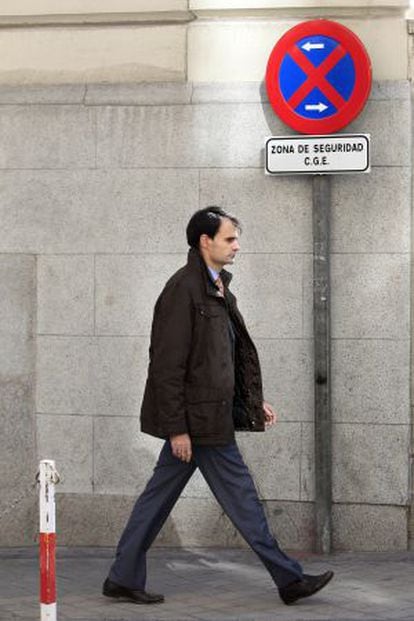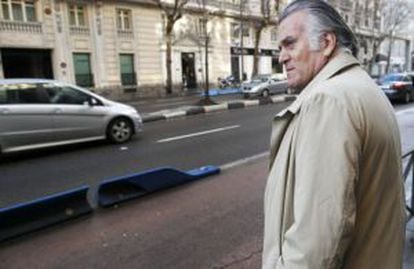As the case goes to trial, who’s who in the Gürtel investigation
Official suspects slapped with civil bonds and fines totalling €449 million That amount is the estimated cost to the public coffers from hundreds of rigged bids

Forty people are set to stand trial for their involvement in the so-called Gürtel case, a kickbacks-for-contracts scheme that has plagued the ruling Popular Party (PP) and that has become the biggest known case of party-related corruption in Spain’s democratic history.
The defendants, who include a former party treasurer and an ex-minister, are formal suspects of 12 offenses allegedly committed between 1999 and 2005. Although Gürtel’s activities extended beyond this date, the sheer scope of the case forced investigating magistrates to break it down into sections.
Investigators have spent five years following the leads of a case involving six regional governments and nearly 200 official suspects, making it the largest pre-trial probe in the history of the High Court, Spain’s central criminal tribunal.
The damage to public coffers from the corrupt business dealings of the ring, allegedly headed up by Francisco Correa (whose surname loosely translates as belt, or Gürtel in German), has been estimated at €449 million.
This is the civil liability that has been set by presiding judge Pablo Ruz against 36 of the defendants, who have been slapped with fines and financial bonds totaling this amount.
Luis Bárcenas, who was a PP manager between 1993 and 2008 and national party treasurer between 2008 and 2009, faces the highest bond of all at €88 million. Bárcenas, who stepped down when the Gürtel scandal broke, has since become a key figure in the case because of parallel accounts he allegedly kept, whose contents suggest illegal party financing and secret cash bonuses to high-ranking party officials.
Bárcenas was also found to have stashed a fortune of around €40 million in Swiss bank accounts, the origin of which remains unclear.
Meanwhile, alleged Gürtel mastermind Francisco Correa faces a financial bond of €60 million to cover civil liabilities in the case. Correa was also found to have close to €30 million stashed away in Switzerland thanks to the preferential treatment his companies received from many elected officials in key positions at local and regional PP-run governments, particularly in the Madrid and Valencia regions.
These officials awarded hundreds of public contracts to Gürtel companies, either without bids or through rigged ones. Gürtel representatives thanked them in cash or with lavish gifts, occasionally going so far as to fund their family trips, as was the case with former health minister Ana Mato.
Mato, however, is only being accused of profiting from her husband’s alleged crimes, as it was Jesús Sepúlveda, a former mayor of Pozuelo de Alarcón, who favored Correa’s companies while in office and accepted cash, presents and trips.

Correa also mediated in land awards, helping businesspeople secure the real estate they desired in exchange for a fee.
The Gürtel investigation began in the summer of 2008 after a former PP councilor, José Luis Peñas, filed a complaint with the anti-corruption attorney. For a year, Peñas had been recording conversations with Francisco Correa, in which the latter detailed his own corrupt business dealings and his ties to PP leaders.
For months, former High Court judge Baltasar Garzón conducted a secret investigation and ultimately ordered three ringleaders arrested in February 2009. He also obtained extensive documentary evidence of parallel accounts kept at Correa’s companies showing the payment of illegal commissions to PP politicians.
Six years later, and under a different judge, part one of the case is finally ready for trial. Judge Pablo Ruz will focus on Gürtel’s activities in Madrid, where the regional government of then-premier Esperanza Aguirre gave Correa hundreds of contracts to organize public events. Aguirre’s right-hand man at the time, Alberto López-Viejo, is charged with taking a 10-percent cut on the cost of these events in exchange for awarding them to Correa’s companies. He is being asked for a €14 million bond.
Meanwhile the second part of the Gürtel case, extending from 2005 to February 2009, still awaits investigation.










































